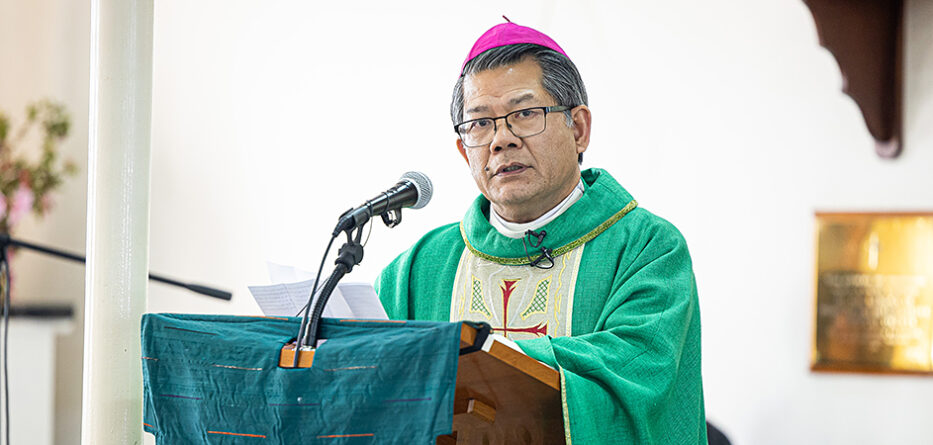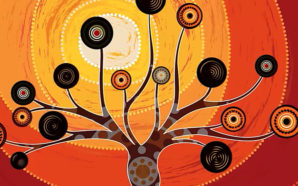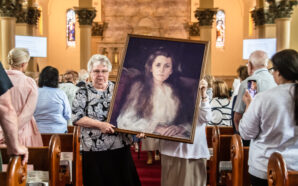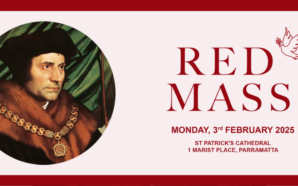Most Reverend Vincent Long Van Nguyen OFM Conv DD STL, Bishop of Parramatta
Homily for the 24th Sunday in Ordinary Time, Year B
Readings: Isaiah 50:5-9; James 2:14-18; Mark 8:27-35
15 September 2024
God’s radical way of non-violence, suffering and powerlessness
Dear sisters and brothers,
We are often drawn to the security of power, strength, dominance and wealth of a worldly nature. Thus, many nations spend more on their military budgets in times of war and rising tensions even at the expense of the poor and the vulnerable. The Church too has not always been spared of the propensity towards dominance. During the time of Christendom, the Church controlled the levers of power in much of the Western world. A dominant and triumphalist Christianity, as history has shown, could and did become distorted. It sanctioned racism, war, violence and -much to our shame- the subjugation of indigenous peoples in the name of the Gospel. Thank God for Pope Francis who has reclaimed for the Church less a role of power, dominance and privilege but more a position of humility, vulnerability and powerlessness.
The Word of God this Sunday challenges us to move from the default model of power, dominion and self-preservation to the new Kingdom model of service, love and self-sacrifice. We are called to live the great paradox of the Gospel: life is lived fully not by surrendering it to self-survival instincts or the dominating powers. Life is fully lived when we walk the path of self-emptying and the cross of the humble Suffering Servant of God.
In the first reading, Isaiah speaks about the future Messiah who would vindicate the faithful exiles and bring them back to their homeland. The prophet, however, describes this hero figure not in imperial model of power and dominance. In fact, it is more like an antihero. The Messiah is the one who “would make no resistance, who would not cover his face against insult and spittle”. Like Zechariah who foretells the king “riding on a donkey”, Isaiah goes against the grain of popular hopes and expectations. This prophecy subverts the script of the empire and points to God’s radical way of non-violence, suffering and powerlessness.
In the Gospel, we also detect this subversion of conventional wisdom. It is the hard talk on the nature of Jesus’ saving mission and what it means to be his follower. The evangelist Mark has worked his narrative to this moment of truth. He has presented Jesus as the healer, the miracle worker, the teacher with authority. Here, halfway to Jerusalem and in the town that bears the name of the Roman Emperor Caesare, the evangelist is at pains to tell us who Jesus truly is.
“Who do you say that I am?” is no ordinary question. In fact, it takes the audience back to the great “I am” revelation at the burning bush. It is to this question that Peter gives the answer: “You are the Christ”. It is the first time in the Gospel that we hear this proclamation. But lest it be misconstrued, Jesus is quick to qualify Peter’s confession. In fact, what follows flies in the face of popular expectations of the Messiah and challenges Peter to the core. He is rebuked and called a stumbling block because has distorted the mission of Jesus.
The revelation of Jesus’ identity took place at Caesarea Philippi, the name that suggests the omnipresence and power of the Roman Emperor. Caesar claimed to be the God’s Son and ruled the world with violence. His Pax Romana or a security system was imposed on Israel with ruthless military might.
Caesar’s claim turned out to be false, because there was only one true Son of God and it was Jesus. This is the Gospel’s subtle but unequivocal assertion. Peter’s response “You are the Christ, the Son of the living God” in effect meant a rejection of Caesar. But more importantly, for Jesus, believing in him meant also a rejection of the imperial mindset and an acceptance of the kingdom and its ethics of justice, love and compassion.
Peter has a steep learning curve on his way to be the foundation stone for the Christian community. Like Paul, Peter also has his pride and ambition checked. He learns to carry the cross as a discipleship of trust, powerlessness, vulnerability and self-sacrifice. He learns to be led to places he’d rather not go. This is not simply geography but above all a metaphor for vulnerable trust which is an essential quality for Christian living and witness.
We are custodians of the Good News. The Kingdom vision of Jesus guides us as we endeavour to be a community that serves as an antidote to the politics of fear, self-interest and the economy of exclusion in our world. We espouse a love that transcends borders and a social friendship that makes universal brotherhood possible. We are privileged to be partners with God’s plan for a shared destiny of hope, communion and life for all.
Jesus today is presented not as a magician who could will the cross away. He is the suffering servant and a compassionate Messiah. Let us pray may live up to our call to be the leaven of the world and the model society under God’s rule. Grounded by the rich knowledge and wisdom of God, may we not only profess the true Messiah as Peter did but also live out the self-emptying nature of the true Son of God by our love and service to one another.








